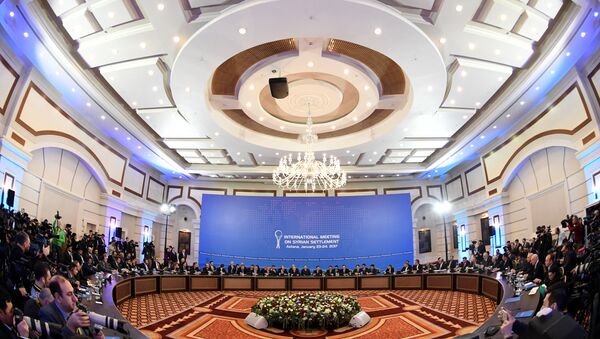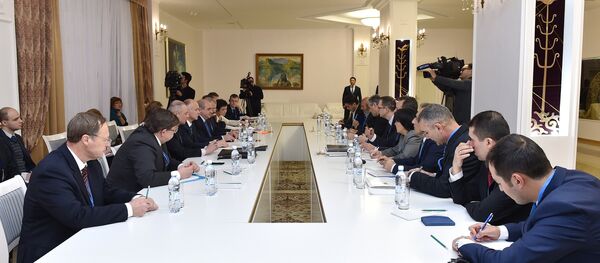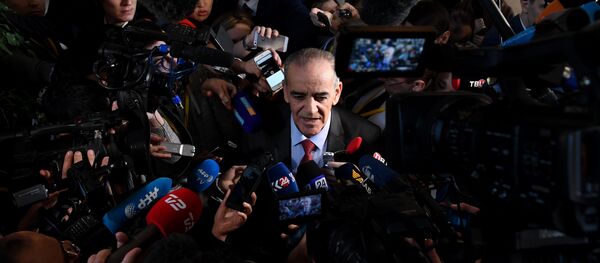The meeting in the Kazakh capital yielded a joint paper by the three sponsors that will also allow for prisoner exchanges, but a joint communique was not adopted.
On the sidelines, UN special envoy for Syria Staffan de Mistura came to Russia on a visit to promote anticipated Geneva talks, scheduled for February 23. He said the Astana meeting had consolidated efforts to bring peace to Syria but said aid convoys still needed greater access to Syrians.
CEASEFIRE MONITORING GROUP
A three-way deal between Russia, Turkey and Iran to set up a permanent contact group to maintain the December 30 ceasefire in Syria was the most tangible result of two days of talks at Rixos hotel in Astana.
"It was the close and sound work with the representatives of Syrian armed opposition groups here in Astana, with the government delegation and our tripartite consultations between Russia, Turkey and Iran, which allowed us to reach a modest but real result by establishing the Concept Paper on the Joint Group that will determine control over the ceasefire," Lavrentyev told reporters.
The three nations also agreed to continue their effort to separate opposition groups from terrorist organizations, such as Daesh and the Nusra Front. Both are outlawed by Russia and many other nations and are not part of the existing ceasefire.
DIRECT TALKS UNLIKELY
In turn, Osama Abu Zeid, a member of the Syrian armed opposition delegation to Astana, said he was pessimistic about the outcome of the negotiations, calling them a "waste of time," and doubted there would be a third round.
Lavrentyev, who is Russian president’s special envoy for Syria, said chances were rather slim that Syrian rival forces would meet for direct talks any time soon as there was still a lot of "mutual distrust" between them.
"But I believe that we must move ahead every time, step-by-step, without leaving any space for confrontation," Lavrentyev stressed. He added the fact that both delegations had turned out was a positive sign, and they would draw on this experience when they gathered in Geneva in a week.
TURKEY UNDER FIRE
Jaafari again accused Ankara of violating Syria’s territorial integrity and called into question its contribution to the Syrian effort as one of the peace guarantors. He said Turkey was underrepresented at the Astana talks, which ran counter to its status as a peace guarantor.
"The Turkish government cannot be fanning the flames and extinguishing them at the same time. And in this case it is certainly fanning the flames. Turkey must withdraw its military forces from our country and respect the Astana 1 Communique that upholds Syria’s sovereignty," he said.




